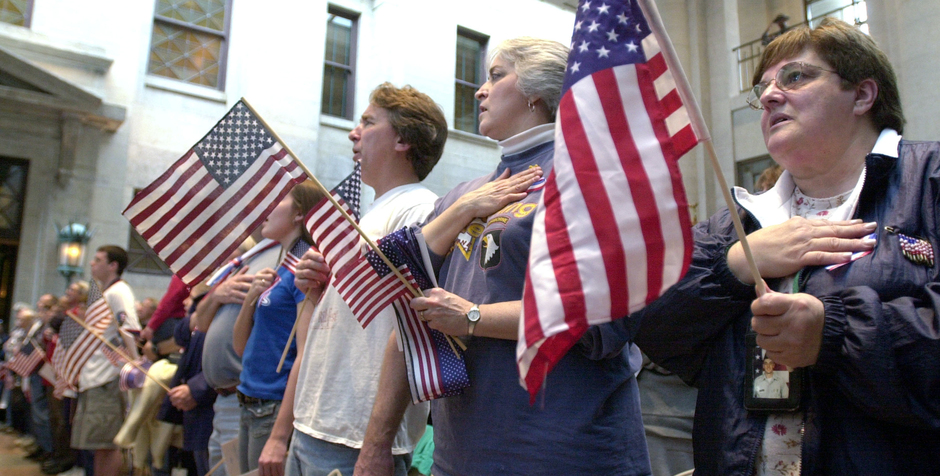What Trademarks at the Supreme Court Have to Do with Free Speech
Yesterday the U.S. Supreme Court heard oral arguments in a trademark case, Lee v. Tam. You may be asking yourself, why does the American Center for Law and Justice care about trademark law? In this case, we most certainly do: at issue is the ability of government to supervise – and penalize – private speakers who say things the government disapproves of. The implications for speech by Christians, pro-lifers, and others who are not deemed "politically correct" are enormous.
At issue is the constitutionality, under the First Amendment Free Speech Clause, of a federal statute that empowers the Patent and Trademark Office to deny registration of trademarks it deems "disparaging." In other words, a government bureaucrat decides if certain names are too "offensive" to register as a trademark. Those who don't like the result can appeal to . . . a board of bureaucrats. This is not a limit on foul language (which the government actually permits in a trademark) or graphic sexual terminology (which the government also permits), but a restriction on saying something deemed insulting to particular persons or institutions.
Imagine the disputes over whether a particular term is "disparaging" or just clever or edgy. You may think that's simply fodder for interesting academic discussions. But now imagine some cases closer to home: a government official deciding whether "Jesus is the Only Way" is disparaging to non-Christians. Or if "Stop the Abortion Slaughter" is disparaging to abortionists or post-abortion women. Hmm. Do we really want a government Ministry of Taste?
In our amicus brief, here at the ACLJ we argued that authorizing government officials to impose amorphous "disparagement" standards on private speakers represented an unconstitutional incursion on free speech. We pointed out that if the Supreme Court were to uphold a speech review scheme like this one, government entities could start applying the same standards in other contexts. "I'm sorry, we can't give your group a tax exemption because the name might offend some people." Or: "I'm sorry, we can't include your Bible Study in our list of government employee groups because we think the name can be disparaging to those who disagree." Or: "I'm sorry, we can't register your student group because the name might offend someone."
We are not alone in being concerned. Groups as diverse as the ACLU, the Becket Fund, and the American Jewish Committee all filed amicus briefs agreeing that the restriction on registering "disparaging" names was unconstitutional.
Yesteerday the Supreme Court heard oral argument in the case. The arguments were not comforting. Some Justices asked why the disparagement rule was a restriction on free speech at all, since any group denied registration could still call itself what it wanted and sue if anyone else copied the name. As if "little" First Amendment penalties don't matter? As if being officially "shunned" by the government and denied access to common benefits is trivial? We explained in our amicus brief:
There are many ways to penalize speech the government does not like. Prohibition is the most obvious, but relegation of certain otherwise protected content or viewpoints to second-class status likewise infringes the First Amendment, at least absent a showing that the government is pursuing a compelling interest by narrowly tailored means. For example, the government could not constitutionally declare that any car bearing "disparaging" bumper stickers or signs may not use HOV or express lanes on federal highways or park in the lots of federal libraries, offices, or museums. The inconvenience to disfavored speakers may be fairly mild, but the hostility to the speech of particular content or viewpoints would be blatant.
One Justice proposed a hypothetical "Peaceful Grove" in which only positive speech would be allowed, with negative and critical speech allowed elsewhere. No one pointed out that having the government in charge of what speech is "peaceful" is a nightmarish dystopia. Do you trust government to decide what is "happy speech"?
The government should not be in charge of deciding what private speech is "mean." When the government runs its own programs -- like the hypothetical "Celebration of Shakespeare" mentioned at oral argument – it gets to set the agenda and approve the topics. But a registry of private groups – like the familiar phone book – is not a government endorsement of the tastefulness of the contents. We hope the Supreme Court will agree.
